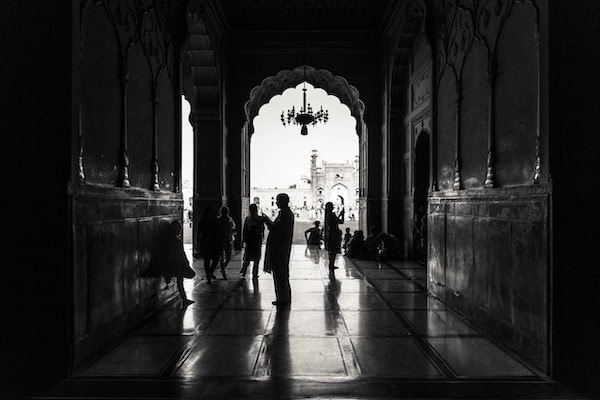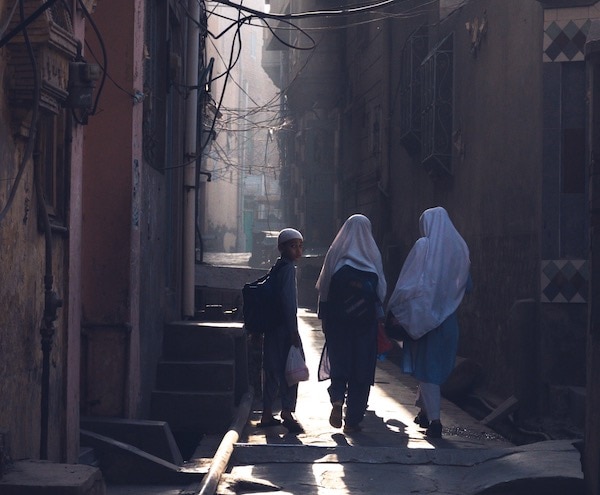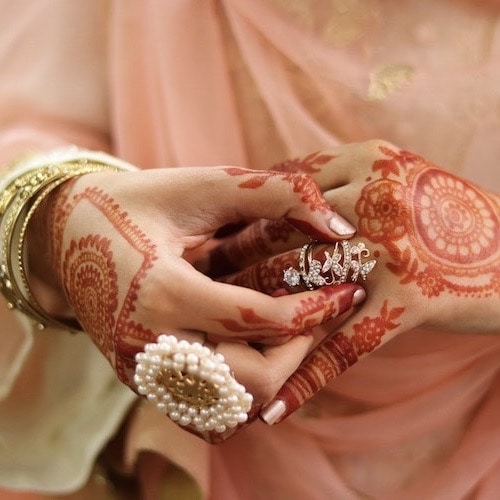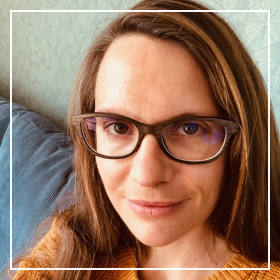“Everything is research data.” As PhD students we must have heard this statement from teachers, mentors, and supervisors a hundred times. The advice points to the widely held assumption in anthropology that everything we experience in the field is worth writing about, even if we might (falsely) consider it an adversity or failure. Yet, what comes as well-meant encouragement for inexperienced researchers can also end up perpetuating a false and problematic image of fieldwork and ethnography as being detached from the researcher’s emotions and vulnerabilities and the local politics of their writing. We cannot always decide freely and with the expected emotional distance and political commitment what we write about and what we leave out in our ethnographies. At times we are simply driven by our unresolved traumas and the suffering that we bring home with us from the field. Here, I want to discuss an experience of violence from my PhD fieldwork several years ago that I have neglected and repressed since then. One reason is the trauma of the violence I witnessed, but perhaps the most important one is the silencing of such testimonies in academia more generally. To unsettle the image of the privileged researcher in anthropology, I focus on the social relationships created by the intersection of our vulnerabilities as anthropologists with the suffering of the people we work with through the epistemological lens of “reciprocal vulnerability”.
What comes as well-meant encouragement for inexperienced researchers can also end up perpetuating a false and problematic image of fieldwork and ethnography as being detached from the researcher’s emotions and vulnerabilities.
It was a mild autumn day in Muzaffarabad, the capital of Pakistani-administered Azad Kashmir. I was visiting my friend Ambar at home, to spend the morning with her and her family. As so often, we were talking and drinking tea in the front courtyard of her house, from where one had a good view over the mohallah (neighbourhood). From time to time, Ambar did some chores, washing the dishes and sweeping the floor. She was a young unmarried woman who was living with her mother, brothers and sisters in a small side-valley on the outskirts of Muzaffarabad. We had met in the city, where from 2009 to 2012 I was doing fieldwork on reconstruction after the 2005 earthquake. That morning, our mood was depressed. I had told Ambar about the day before, when I wanted to visit another woman friend, Bilqis, who lived on the nearby hillside across the street. As I approached Bilqis’ house that day, I noticed from a distance that many guests, mostly older men, had gathered in the courtyard. To my surprise and consternation, the neighbours explained to me that Bilqis’ wedding (nikah) was taking place at that very moment – against her will.[i] That was why the guests had come to her home.

The terrible news about Bilqis’ forced marriage made Ambar angry and deeply concerned. She lamented that Bilqis was very young and had only recently started higher education. The Raje people – that is, the people of Bilqis’ kinship group (biraderi) – were very strict and violent, Ambar bitterly added. She claimed that in her own biraderi – the Abbasi group – women would not be married against their will. I rather doubted that. Her accusation, however, made it clear that criticism of patriarchal power relations could only be voiced in a concealed manner, such as in the social language of group rivalry.[ii]
Criticism of patriarchal power relations could only be voiced in a concealed manner, such as in the social language of group rivalry.
As we were talking, Ambar and I suddenly heard terrible screaming coming from Bilqis’ house. In the courtyard, a large fire had broken out. We saw that a few women quickly extinguished the fire. Meanwhile, from all over the mohallah, women left their homes and ran towards Bilqis’ house to see what had happened and to help. Ambar and I did the same. On our way to the opposite slope, Ambar whispered “God forbid that it is Bilqis.” But in the courtyard, about twenty women were standing around Bilqis, who sat huddled on the ground. Bilqis’ body was wrapped in a large cloth. She wore a headscarf, so that only her face was visible, pale and covered with soot stains and small wounds. Blood dripped from her torn lips. She seemed impassive. With the help of some women, Bilqis’ father lifted her on to a carpai (traditional bed). Getting up caused her pain. She whimpered. Her father and some other men from the mohallah then carried Bilqis on the carpai down to the main road, from where she was taken to the local hospital in a Suzuki bus.
Bilqis’ mother explained that the fire was an accident and had spread from the gas cooker. However, most women did not seem to believe her. As we headed back to Ambar’s home, a woman turned to us and whispered that she had noticed the smell of petrol (mati ka del ki bu ati hai). This confirmed our terrible suspicion that Bilqis had attempted to commit suicide by setting herself on fire to escape her forced marriage. The burns were so severe that she had to be immediately transferred to the hospital in Rawalpindi, five hours away. There, Bilqis died from her injuries four days later.
Behind closed doors, most women did not believe it was an accident.
In the following days, I was terrified and paralysed. Seemingly out of nowhere, crying fits shook my body. I could not believe that Bilqis was dead: the young, cheerful, and ambitious woman who had wanted to become a medical doctor. But even deeper was the shock that she had been driven to suicide by a forced marriage and that this brutal violence had to be accepted by those around her, including myself. Behind closed doors, most women did not believe it was an accident. They considered Bilqis’ death a forced suicide, a desperate attempt to escape a forced marriage. They kept telling me how cruel and morally wrong it was to force a woman into marriage. However, despite the rumours of her violent death, “nothing” happened. There was neither a police investigation nor a public outcry. Bilqis’ self-immolation was treated as a tragic but normal accidental death. The reason was that, in many ways, it was a normal death – not for me, but for the women around me and in other countries of South and Central Asia (such as Afghanistan, Iran, and India) and Africa who live with this facet of patriarchy and domestic violence (for an anthropological reading of female suicide as resistance, see Billaud 2012). Bilqis’ death spread fear and reminded women of their powerlessness when it comes to their lives and bodies. This also affected me. Witnessing the cruelty of a forced suicide for which no one was held accountable felt like heavy hands wrapped around our throats, choking us, scaring us to death, and silencing our voices. We were reduced to rumours and silent outrage, grief, and anger as the only way to resist patriarchal violence.

We attended Bilqis’ funeral and performed the mourning rituals at her home. After some days, we all went back to our lives. I went back to my research and, later, home to Switzerland.
In many ways, it was a normal death – not for me, but for the women around me.
I have never written about the violence I have witnessed and experienced in the field. I was ashamed of my silence and cowardice, although no one in the field accused me of that. I felt guilty for not having done anything to ensure justice for this young woman’s violent death. It was not only that Bilqis was my friend, but that I was an anthropologist. I expected myself to act as an ally of the people I worked with and to speak up against the violence and oppression they were suffering. This moral expectation did not match the scared and traumatised woman I had become in the face of patriarchal violence. My professional self-image crumbled. It was painful to learn that the feeling of shame and of having failed as an anthropologist and ally is an effect not only of the violence and gendered silences in the field but also of the male-dominated heroic image of the politically engaged researcher that prevails in anthropology at home. In this way, my experience as a woman researcher was shaped by power relations in the field that were inseparable from those at home. I feared that to write about my inability to speak would cast doubt on my professional work, political commitment, and moral integrity as an anthropologist.
As anthropologists, we are not always in a privileged position to oppose and speak up against oppression and violence.
Rethinking engaged anthropology from our embodied experience of fieldwork, Maya Berry and her colleagues criticise the fact that “activist anthropologists are expected to engage in lone acts of bravery in order to shed light on the struggles of others with less relative privilege” (Berry et al. 2017, 547). This image ignores that the power relations within the societies and groups with whom we work can operate on our bodies and minds in equally constraining and oppressive ways. As anthropologists, we are not always in a privileged position to oppose and speak up against oppression and violence. At times, we are terrified, vulnerable, and condemned to silence in much the same way as our research interlocutors. Indeed, the ways in which cruelty “invades our minds and bodies poses a challenge to the idea of the researcher who is inherently privileged in relation to her field” (2017, 550). Despite the reflexive turn in anthropology, it is often still precisely this idea of privilege that shapes our understanding of professionalism and political engagement. The false and damaging self-image of the privileged researcher in anthropology is also one of the reasons why so few women anthropologists write about sexual assault in the field, even though we know that many have experienced it in one way or another. It seems that there is fundamentally a “‘shut up and take it’ mentality” (2017, 538) in academia toward gendered and other forms of violence in the field. We are expected to remain silent about our traumas so that we conform to the prevailing image of the heroic and adventurous able-bodied, male, and white researcher. This silencing of the fieldworker’s experience of abuses, fear, loss, and grief disguises the contradictions of politically engaged research and ends up undermining anthropology’s longstanding struggle for reflexivity in academia. Rather than understanding our vulnerabilities as a failure and lack of professionalism and political engagement, we need to ask how we can produce ethnography through engaged research in violent contexts from which we cannot be completely detached: “How does our involvement in patriarchal relationships, as marked but relatively privileged women, affect local dynamics, the knowledge we produce, and our methodologies?” (2017, 540).
We were reduced to rumours and silent outrage, grief, and anger as the only way to resist patriarchal violence.
From my fieldwork experience in Azad Kashmir, I have only a partial answer to this question. My involvement as a woman ethnographer in local power relations and society exposed me to patriarchal violence. At the heart of this “ethnographic vulnerability” lies an intimate intersection of my witnessing of violence with the suffering of the women I worked with. I experienced, at least partially, on my own body and mind the oppression and silencing that shapes the lives of my research interlocutors. This is not to say that I was not privileged over them. I was able to leave the field and escape certain forms of violence against women, forms that I was not exposed to at home. And yet, the trauma of witnessing violence, concerns about the well-being of my friends, and the vague feeling of having forsaken them stayed with me – and always will. Privilege is relative and can vanish in certain situations. While in the field, our shared experience of Bilqis’ violent death and the patriarchy’s cruelty bound us together through networks of what I understand as “reciprocal vulnerability”. Looking at researchers’ vulnerabilities through the analytical lens of reciprocity allows us to focus on the ways in which shared experiences of violence, fear, loss, and grief create relationships and exchange between the anthropologist and their interlocutors. The question is: what do we give to each other as vulnerable women in the face of patriarchal violence? As I see it, vulnerabilities not only render lives precarious but also foster social alliances and possibilities for healing, mutual support, and resistance to violence and oppression (see also Butler 2015). In many encounters and conversations with women after Bilqis’ death, I experienced solidarity in how we sad and scared women consoled each other and reassured each other of common moral values, such as the rejection of coercion. Marriage, as the women assured me and each other again and again, must not take place without the consent of the bride.
I experienced solidarity in how we sad and scared women consoled each other and reassured each other of common moral values
Perhaps being an ally in the field and at home, sometimes, means precisely that: accepting our powerlessness as anthropologists, which we share with others in and across certain places and times. In this acceptance, I believe, lies the courage and power to break the silence in academia about our own vulnerable bodies and minds as researchers by participating in and reflexively writing about our interlocutors’ informal and suppressed networks of survival and care in the face of violence and death.
Podcast
References:
Berry, Maya, Claudia Chávez Argülles, Shanya Cordis, Sarah Ihmoud, Elizabeth Velásquez Estrada. 2017. “Toward a Fugitive Anthropology: Gender, Race, and Violence in the Field.” Cultural Anthropology 32 (4): 537–565.
Billaud, Julie. 2012. “Suicidal Performances: Voicing Discontent in a Girls’ Dormitory in Kabul.” Culture, Medicine, and Psychiatry 36: 264–285.
Butler, Judith. 2015. Notes Toward a Performative Theory of Assembly. Cambridge, Mass.: Harvard University Press.
Footnotes:
[i] In the Islamic context of Azad Kashmir, nikāh is when the marriage contract is signed by both the bride and the groom. This usually takes place months and sometimes years before the couple is actually married and the bride leaves for the groom’s home (ruxastī).
[ii] Biraderi refers to a person’s patrilineal descent group going back to a common ancestor. Despite the solidarities between biraderi groups and their members as neighbours, friends, or relatives (through marriage), there are also rivalries and conflicts among them, evident, for instance, in social and political forms of exchange, preferential marriages, and prejudices.
Featured picture (cropped) by Abuzar Xheikh, courtesy of Unsplash.com





